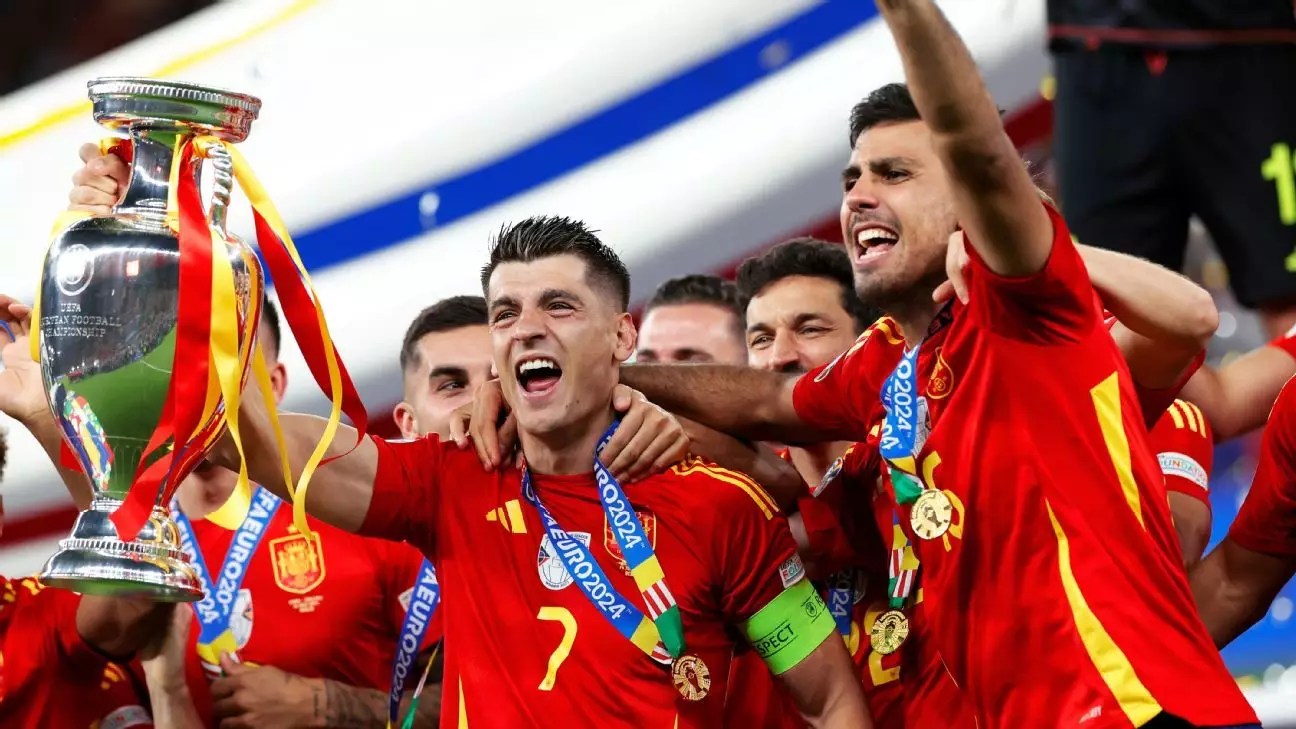The prospect of Spain hosting the 2030 World Cup hangs precariously in the balance as the nation grapples with a significant leadership vacuum within its football federation. Coach Luis de la Fuente’s recent comments illustrate the urgency of the situation, warning that the failure to promptly elect a new president for the Royal Spanish Football Federation (RFEF) could jeopardize Spain’s hosting rights alongside Portugal and Morocco. With FIFA’s critical decision-making meeting scheduled for December 11, time is of the essence for Spain to rectify its administrative issues.
The RFEF has been operating without a president since July when Pedro Rocha was suspended for a serious infraction. The repercussions of this vacancy are profound, affecting not only the governance of Spanish football but also impacting the broader socio-economic landscape. De la Fuente’s candid remarks—that any indifference towards the situation might stem from ignorance—underscore the heightened anxiety within Spanish football circles about the impending FIFA evaluation.
FIFA’s Expectations and Political Nuances
FIFA’s insistence on a non-interference policy regarding government involvement in football federations adds an additional layer of complexity to Spain’s predicament. The meeting held recently in Madrid with government representatives and RFEF officials was less of a routine discussion and more of a demand for immediate action. FIFA’s directive to stabilize leadership within three months reflects a zero-tolerance approach towards inefficiencies that could derail the ambitious plans for the World Cup.
De la Fuente emphasizes the significance of stabilizing the federation’s leadership for multiple reasons, ranging from the honor of hosting the tournament to the financial implications it holds for the country. His commitment to fostering a compliant and effective governing body resonates with the broader football community, motivating stakeholders to expedite the election process to reassure FIFA of Spain’s reliability as a host nation.
Squad Developments Amidst Uncertain Times
As Spain navigates this administrative crisis, challenges persist on the footballing front as well. De la Fuente’s recent announcement of his squad for the upcoming Nations League matches showcased strengths amidst hardships. Notably, the absence of key midfielder Rodri, sidelined due to a severe knee injury, represents a significant blow to the team’s dynamics. De la Fuente’s optimism regarding Rodri’s recovery foreshadows an inherent resilience in both the player and the squad, echoing a spirit that has long characterized Spanish football.
Through these turbulent times, the football community remains vigilant. Should the RFEF act decisively and appoint a new president by the stipulated three-month deadline, Spain can still cultivate hope for a successful World Cup hosting joint venture. However, if the status quo persists, the nation risks not merely a lost opportunity on the global stage but also a severe blow to its footballing legacy and economic prospects.
The clock is ticking for Spain as it seeks to reconcile leadership challenges while remaining competitive on the football field. Collaborated efforts will be essential to navigate the intricacies of governance and ensure a firm path towards the eagerly anticipated World Cup. Without decisive action, Spain may not only lose the chance to host a prestigious tournament but also the respect it has garnered within international football circles.


Leave a Reply